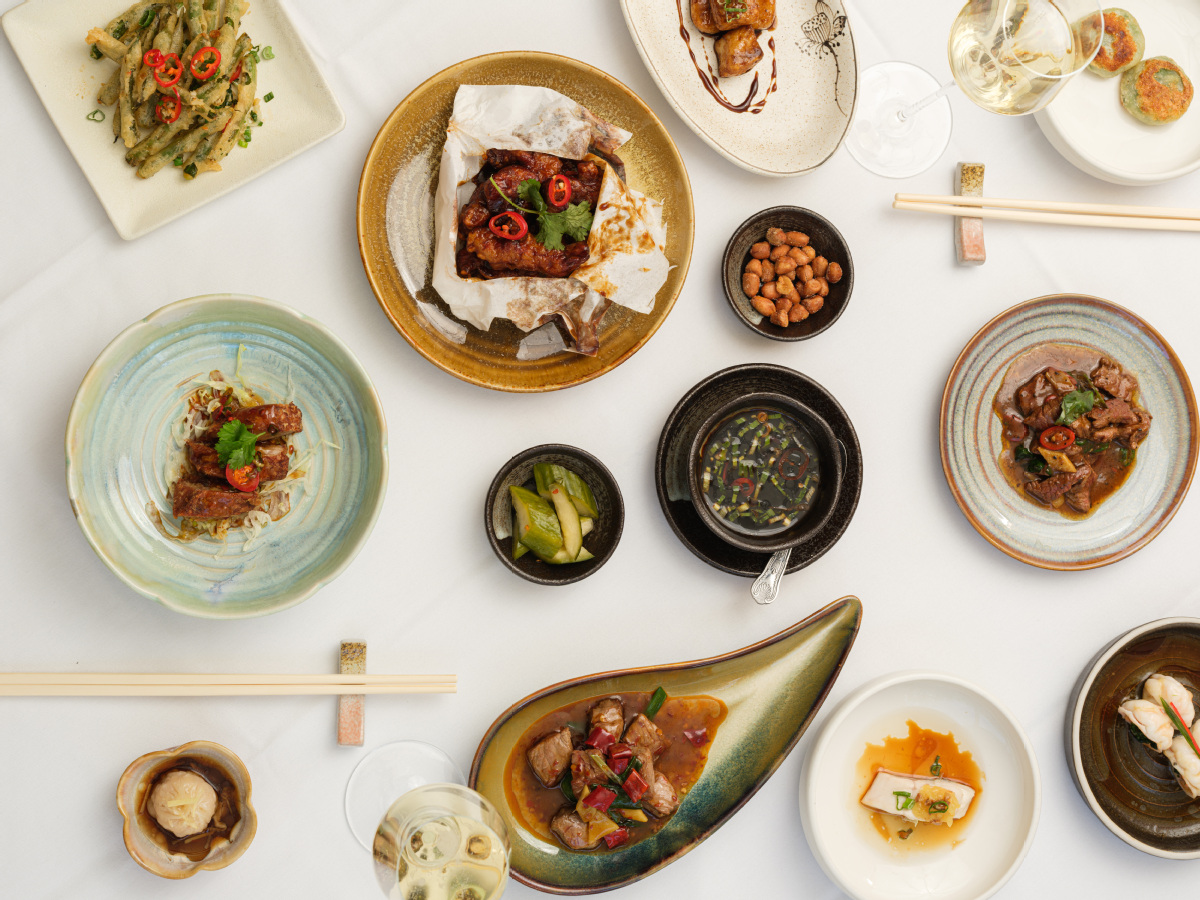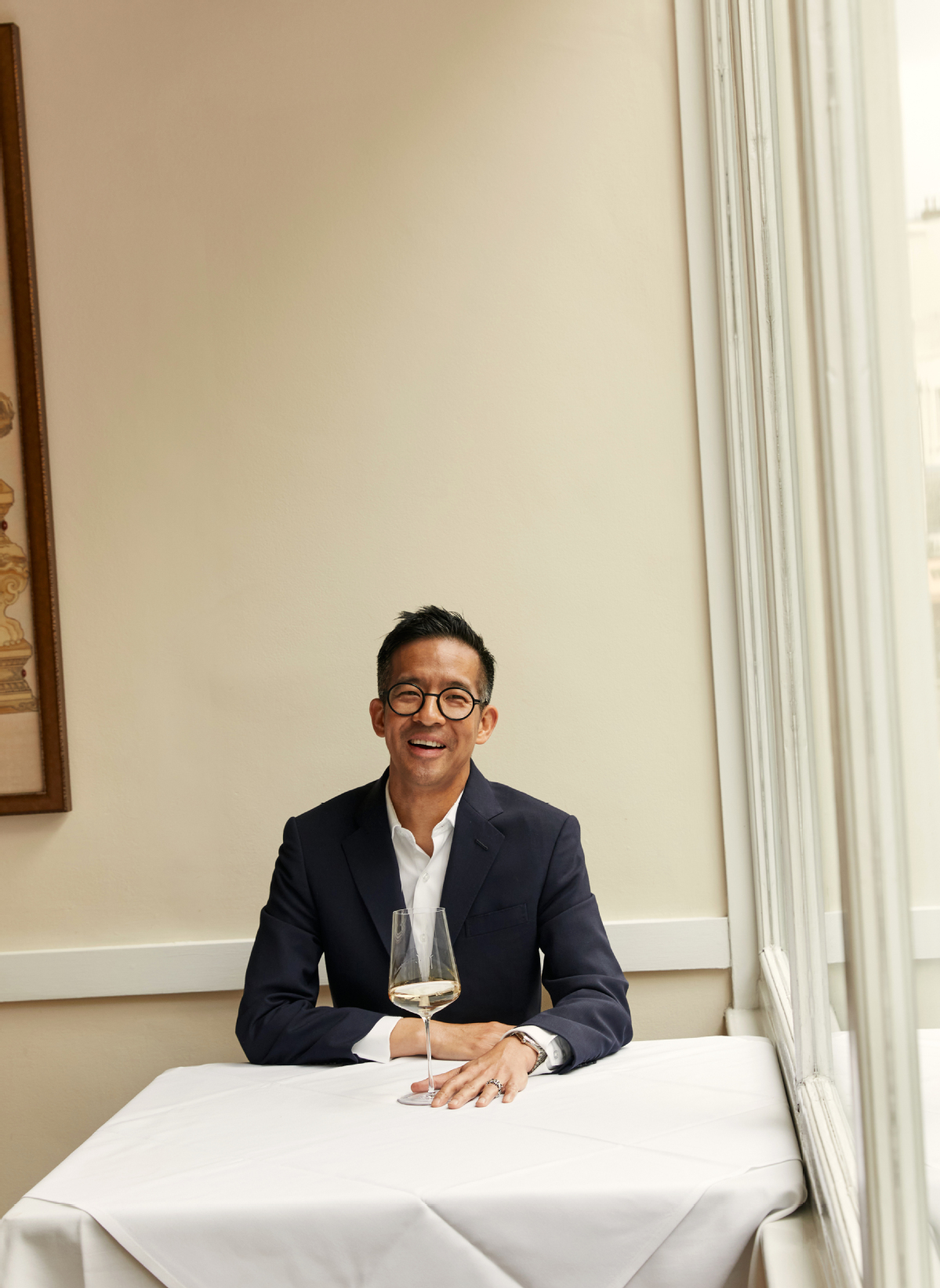
A selection of dishes on offer at Hunan restaurant. PHOTO PROVIDED TO CHINA DAILY
Hunan, a restaurant in the heart of central London's Belgravia district, stands out as one of the United Kingdom capital's most distinctive Chinese restaurants, with its unusual no-menu approach to dining.
For more than four decades, Hunan has defied convention, offering a culinary experience that blends innovation with authenticity.

Michael Peng, who has owned andrun Hunan restaurant since 1999. PHOTO PROVIDED TO CHINA DAILY
Michael Peng, who took over the restaurant from his father in 1999, continues to honor its trailblazing ethos while introducing his own modern touches.
Hunan's story began in 1982, when Peng's father, a passionate chef who started cooking at 14, decided to offer something beyond the predominantly Cantonese fare that characterized Chinese restaurants in the UK at the time.
"He wanted to introduce a different type of cuisine," Peng explained. "He felt Chinese food wasn't just limited to Cantonese cooking."
Initially focusing on Hunan cuisine, which is known for its spicy flavors and fresh aroma, Peng's father later incorporated elements of Taiwanese and Cantonese culinary traditions. At the heart of this innovation was a bold and unconventional approach – a no-menu dining experience, which became the restaurant's signature style.
"My father initially had a very small à la carte menu, but most people would order from it and get something entirely different," Peng said with a laugh. "There used to be a lot of arguments when the bill came. People would say, 'I didn't order this,' and my father would reply, 'I gave you a better dish.'"
When Peng took over, he fully embraced this philosophy, eliminating the à la carte menu entirely.
Today, Hunan serves a curated selection of 12 to 18 dishes, meticulously tailored to each diner's preferences, dietary needs, and even cultural backgrounds.
The "Leave it to us" approach, where diners trust the chefs to craft their meals, was ahead of its time in the 1980s but is now celebrated worldwide.
"Back then, it was unheard of," Peng said. "But now, it's quite common, especially with Japanese omakase-style dining."
While preserving the essence of his father's legacy, Peng brought his own modern touch to Hunan.
"One of the changes I made was sourcing the best British ingredients," he explained. "Our meat comes from the Lake District, and we work directly with fishermen to get the freshest seafood."
Peng emphasized that the simplicity of Hunan's dishes demands the finest quality ingredients.
"Sometimes, there are only three or four ingredients on a plate. You can't hide with that kind of cooking – it's similar to Italian cuisine in its respect for simplicity and quality."
Wine also became a focus under Peng's stewardship.
"When I took over, wine in many Chinese restaurants wasn't great. So, we invested in building strong relationships with wine importers and winemakers," he said.
Hunan now offers a curated selection of wines, including low-alcohol varieties that pair well with Chinese cuisine.
"German wines, for example, are some of the best matches for Chinese food," he added.
Despite its success, running Hunan hasn't been without challenges. The unique no-menu concept required building trust with customers.
"There's a big element of trust when you let someone choose your meal. It's quite an intimate experience to feed someone," Peng reflected.
Operating in London's competitive restaurant scene also demands adaptability.
"We're in a city that's so diverse and multicultural. People's tastes are broadening, and there's more demand for authentic and high-quality experiences," he said.
As more Chinese restaurants from the Chinese mainland establish themselves in London, Peng views the evolution positively.
"London is a melting pot. Chinese cuisine is so vast and relatively unexplored, so it's great to see more diversity. But I think authenticity is crucial. You have to pass on that knowledge, and it's something I feel is getting lost today."
One of the barriers to preserving this authenticity, Peng explained, is the lack of formal training opportunities for Chinese cooking in the UK.
"If you want to learn French cuisine, there are institutions and schools. But where do you go to learn authentic Chinese cooking here? That's something we need to address to keep our culinary traditions alive."
Hunan's intimate ambience, attentive service, and emphasis on quality have garnered loyal customers over the years. While some have speculated about whether the restaurant will aim for a Michelin star, Peng remains pragmatic.
"It's not something I've pursued," he said. "We're just a small neighborhood restaurant. But if my staff wanted to aim for it, I'd support them."
For Peng, the essence of Hunan's success lies in creating a happy, cohesive team.
"If your staff are happy, your customers will be happy too," he said. "I focus on building a team that works well together, and I think that's really important."
wangmingjie@mail.chinadailyuk.com